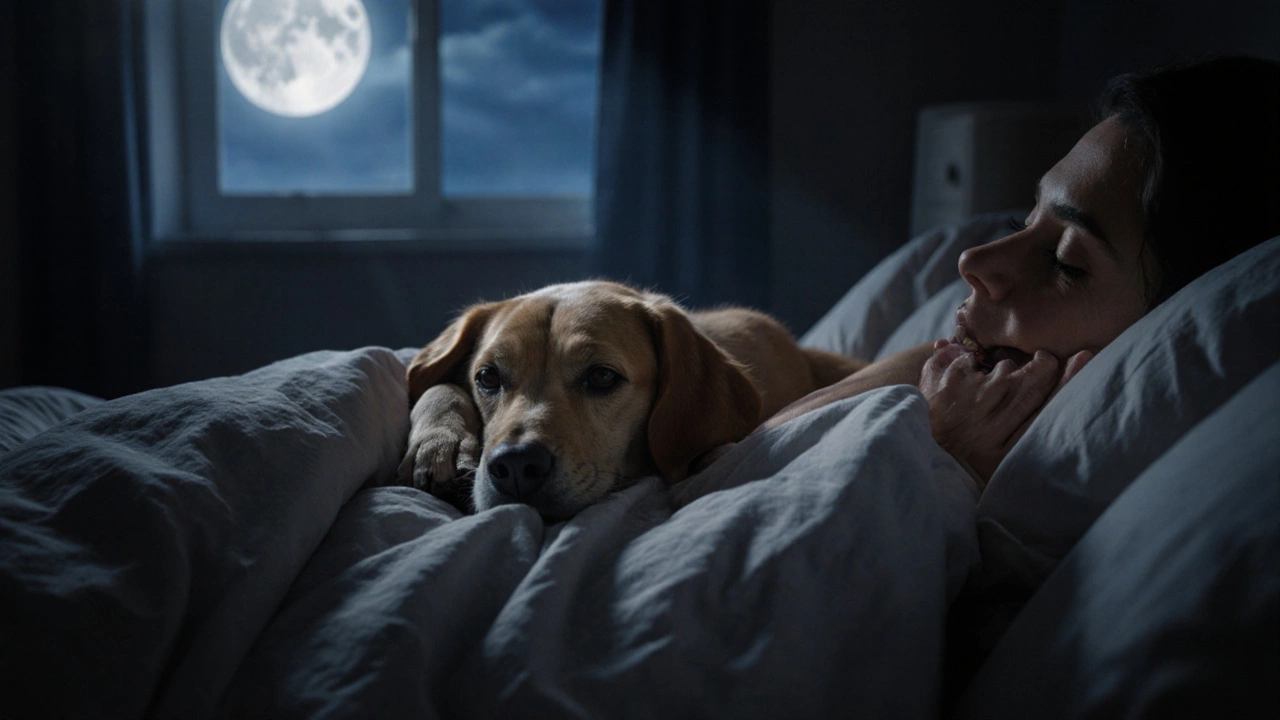Dog Sleep in Bed: Why It Works, When It Doesn’t, and What Science Says
When your dog curls up beside you at night, it’s not just habit—it’s dog sleep in bed, a natural behavior rooted in pack bonding and comfort-seeking. Also known as co-sleeping with pets, this practice is common among dog owners who see their pets as family. But is it good for them? Or for you? The answer isn’t simple, and it starts with understanding how dogs experience rest.
dog bedding, the surface your dog sleeps on, directly impacts their joint health, temperature regulation, and overall sleep quality. A worn-out cushion, a too-hard floor, or a bed that’s too small can lead to restless nights—even if they’re snuggled up with you. Dogs don’t just need a spot to lie down; they need support. Older dogs with arthritis, puppies still growing, and breeds prone to hip issues all benefit from proper support. And if your dog keeps shifting, scratching, or waking up stiff, it’s not just being dramatic—it’s a sign their bed isn’t working.
dog sleep habits, the patterns dogs follow when resting, vary by age, breed, and even personality. Some dogs need 18 hours of sleep a day. Others bounce around like they’re on a mission. They cycle through light and deep sleep faster than humans, and they often wake up more frequently. That’s why a quiet, consistent spot—even if it’s your bed—can help them feel secure. But if your dog is stealing the covers, kicking you, or disrupting your sleep, it might be time to give them their own space that still feels like home.
It’s not about control. It’s about balance. Your dog’s sleep isn’t just about comfort—it’s tied to their stress levels, behavior during the day, and even how they respond to training. If your dog sleeps better on your bed, that’s fine. But if they’re sleeping poorly because your bed isn’t right for them, that’s a problem you can fix. You don’t need to choose between cuddles and good rest. You just need the right setup.
Below, you’ll find real advice from dog owners and vets on what works, what doesn’t, and how to tell if your dog’s sleep routine is helping—or hurting—their health. From choosing the right bed shape to understanding why your dog insists on stealing your pillow, these posts give you the facts without the fluff.

Does Letting Your Dog Sleep in Your Bed Cause Separation Anxiety?
Letting your dog sleep in your bed doesn't cause separation anxiety. The real issue is emotional dependence and fear of being alone. Learn how to tell the difference and what actually helps.
View more